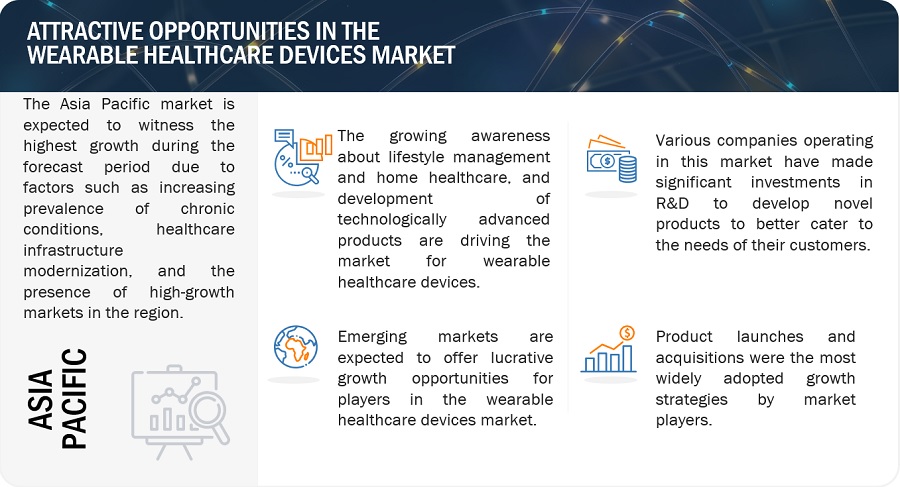The wearable medical devices market is expected to reach USD 14.41 billion by 2022 from USD 6.22 billion in
2017, at a CAGR of 18.3%. Factors such as technological advances in medical
devices, increasing penetration of smartphones and growing number of
smartphone-based healthcare apps compatible with wearable devices, growing
preference for wireless connectivity among healthcare providers, and increasing
awareness about physical fitness are driving the growth of this market.
To Know More @
Product launches, upgrades, and
approvals accounted for the largest share of the overall growth strategies
followed by key players between 2014 and 2017. Some of the companies that adopted
this strategy include Fitbit (US), Garmin (Switzerland), and Omron (Japan).
The wearable medical devices market
is highly competitive with several big and small players. Prominent players in
this market include Fitbit (US), Philips (Netherlands), LifeWatch
(Switzerland), Garmin (Switzerland), and Omron (Japan). The other players operating
in this market include Drägerwerk (Germany), Nokia Technologies (US), Jawbone
(US), Polar (Finland), Wor(l)d Global Network (US), Activeinsights (UK),
VitalConnect (US), Xiaomi (China), Misfit (US), and Monica Healthcare (UK).
Fitbit (US) was the leading
player in the wearable medical devices market in 2016. The company’s leading
position is primarily attributed to its strong brand image and product
portfolio. The company focuses on product launches to increase its market
presence. For example, in 2017, the company launched Fitbit Iconic and its
Fitbit Alta HR devices in the market. It also places significant importance on
global expansion; this is evident from the establishment of its EMEA
headquarters in Dublin, Ireland in August 2016. Apart from this, the company
has a robust distribution channel; it offers its products through 50,000 retail
stores in 63 countries.
Garmin
(Switzerland) was the second largest player in the wearable medical devices
market in 2016. This is attributed to the increasing focus of the company on
organic growth strategies such as product launches. The company offers a wide
range of wearable medical technologies. Over the years, it has added a number
of innovative products to its portfolio. For example, in 2017, the company launched
vívofit jr. 2 activity tracker, vívomove HR, and vívosmart 3 in the market.
This helped the company in strengthening its product portfolio and market
share.







No comments:
Post a Comment